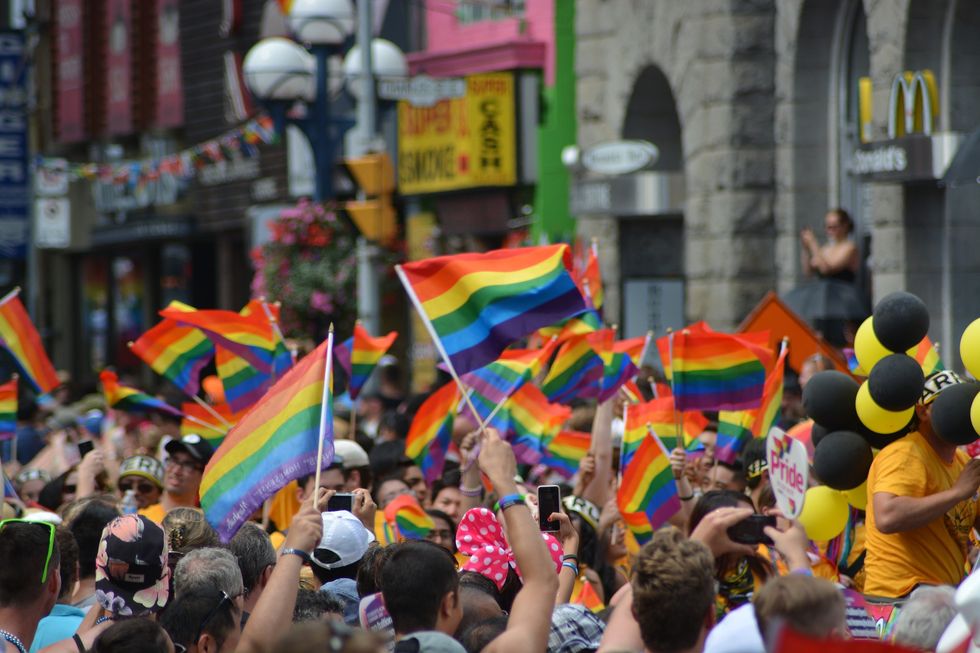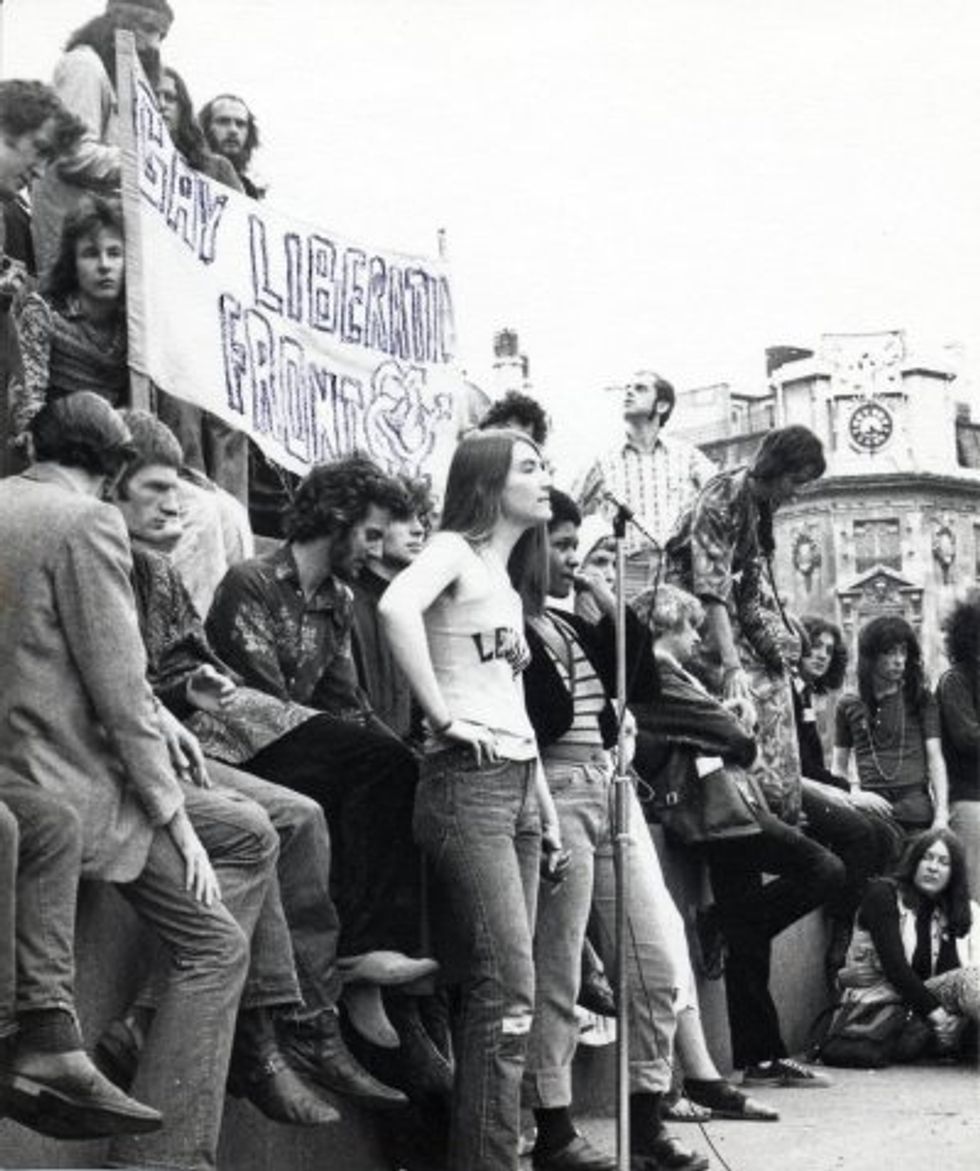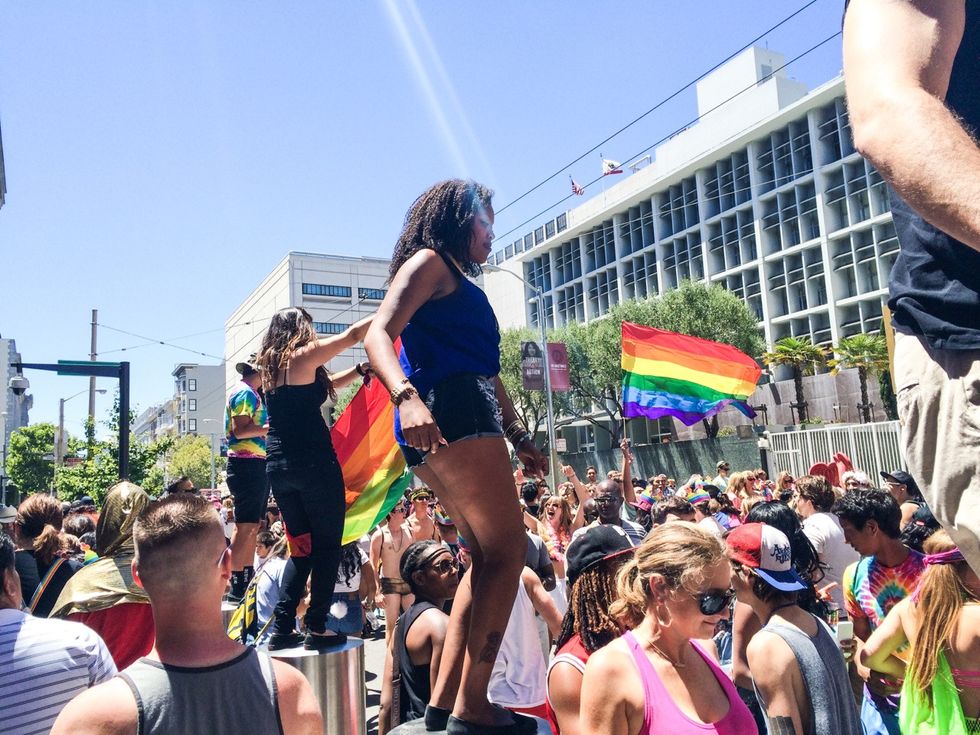In June of 1970, cities across the United States hosted their first incarnation of what is now Pride.
It was originally called Christopher Street Liberation Day, after the street upon which spontaneous demonstrations and riots had broken out the year before (better known as the Stonewall Riots). Brenda Howard, often called the “Mother of Pride,” was the bisexual, polyamorous feminist who initially established the idea of a week-long series of events surrounding the rally, and since then each June has been marked by similar demonstrations worldwide.
This June, Pride feels particularly visible. I don’t know why; perhaps my social media accounts have more queer friends, perhaps it is a starker contrast to the current silent administration, or perhaps things really are becoming more visible. Regardless of which is true, the month comes with complicated feelings. Pride comes, for me, with a feeling of excitement and resurgence: this is the time when we come out of the woodwork, this is when we congregate, take to the streets, are vibrant and loud and ecstatic in our defiance, or defiant in our ecstasy. But Pride isn’t a solstice dictated by the universe. It’s hosted and run and defined by people.
Sometimes people aren’t that great.
The only Pride month celebration I have ever been to was three years ago. It was beautiful and colorful and gay in all senses of the word, and it welcomed all—except that really, it kind of didn’t. It was everything you picture it to be, but not everything I wanted it to be.
I remember encountering punk-accoutred menfolk wandering the square with their genitalia hanging out, and recognizing the freedom in body confidence and decriminalization of nudity and sexuality, but also recognizing the alienation it would have brought to the people in my life who have experienced sexual trauma, or who didn’t want to be exposed to nudity without consent. I recall browsing booths boasting rows of t-shirts with revolutionary queer power mottos, and faltering when the majority of them equated queer or gay attraction with a highly cisgender-centric, genitalia-exclusive preference. I visited vendors and was greeted unanimously by gendered titles assuming an identity by my appearance… despite my shirt visibly bearing a nonbinary slogan in giant text.
There were dozens and dozens of spaces for kink exploration and BDSM community, and little to no safe places for the overstimulated or otherwise in need of respite. There was queer sex positivity and celebration and glorification—which I absolutely support, knowing the history of the LGBTQIAP+ community and oppression of nonhetero sex acts and sexuality—yet nonetheless, there was hardly any recognition of sex-repulsed, sex-traumatized, or asexual-spectrum folk. Alcohol and nightclub advertisements colored the festival with an atmosphere of fun and wildness and I wondered if there was also support for queer folk who struggle or have struggled with substance abuse, who are sober, or who are underage.
Here’s what I ultimately long for from Pride: I want Pride to be an expression of who we are, who all of us are, who we are really, not just on television shows and in the backgrounds of movies. This means inclusion of the sexual and the asexual, the romantic and the monogamous and the polyamorous and the committed and the promiscuous and the aromantic and the old and weary and the young and inexperienced. This means celebrating sexual, romantic, gender, and overall queer diversity. This means recognition of transgender and genderfluid and nonbinary and gender nonconforming attendees. This means awareness of intersectional overlap of queerness and sexuality and gender with cultural identity, race, and socioeconomic stratification. This means not creating an obligation for folks to label themselves into pre-existing dichotomies, roles, and relationships, and it also means allowing for the labels and identities which do sprout among us, however specific. It means being unrestrictive, yes, but accommodative, too; it means presuming that there will be a broad spectrum of needs and abilities and creating access and safety for the widest possible audience.
I wanted to write this article for a few reasons, and none of those are to criticize Pride. There is room in me for resentment, for righteous indignation, absolutely: most of which is perfectly capable of taking up occupation within me at any time of year. But I don’t want to feel that way in my own community. I want to have joy, to celebrate, to practice radical euphoria, to promote history and diversity and resistance. I am here for all who have Pride and all who are looking to find it.
There is more that I want, though, too. I have pride in myself already; that is not the problem. What I want is for the rest of my brethren to have room in their pride for me and people like myself.
For some, Pride is a victory march. But when thinking about a topic like this, it is also important to remember how we arrived at the movement we now call Pride. Before the Stonewall riots (which prompted Christopher Street Liberation Day which became Gay Liberation which became Pride), gay rights organizations in the US represented their community with what were called Annual Reminders. Picketing each year on the 4th of July, these demonstrations served to remind the community at large that “life, liberty, and the pursuit of happiness” were civil rights still denied to LGBT+ Americans. This is the message which still feels at home to me, as someone whose gender identity, orientation, and self-expression have yet to be legitimized. And this is the message that I sometimes fail to witness in congregations of the Pride community. Where are the messages legitimizing not just same-sex marriage and the popularization of drag, but also genderqueer identities and polyamorous relationships and complex sexual-romantic experience and disability and neurodiversity and all the rest?
So how can community members and allies fulfill this vision of Pride this June? I think the best way to do so is by remembering to represent not only those battles which have been called in our favor, but also those which are still not won. Make room for the outcasts you know well, and also those whom you don’t. Pride is a badge earned by all of us, every letter within the acronym, every subidentity of queer, every diverse and intersectional representation of LGBT+ reality. Everyone deserves the space and recognition through which to fulfill their own pride.


















